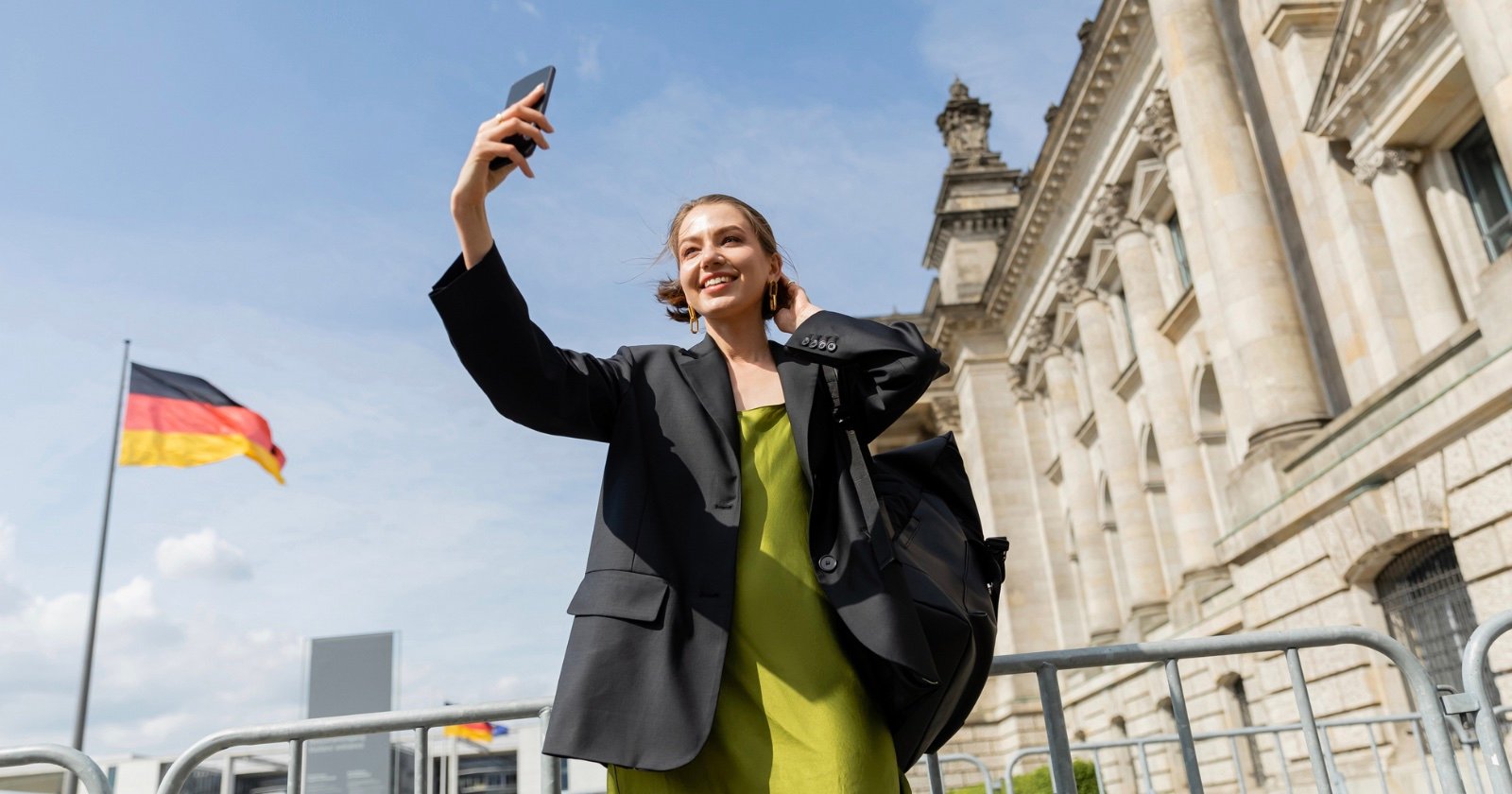
![]()
Selfies have become a ubiquitous part of daily life in most major cities. But there is one European city where it may not be so commonplace: Berlin.
According to a report by BBC Travel, in Berlin, Germany — where privacy, living in the moment, and counterculture are highly valued — selfies are simply not the done thing.
BBC Travel reporter Kate Bettes notes that in her hometown of Sydney, Australia, people posing with their smartphones is very much an everyday occurrence.
However, since moving to Berlin six months ago, Bettes says she has noticed distinctly fewer people taking selfies in public with their smartphones — with this form of self-portraiture seen as “self-indulgent.”
A City That Values Privacy
According to 2017 research from the University of Hohenheim on attitudes, behaviours, and perceptions of privacy cited in Bette’s article, German citizens value their privacy to a high degree and disclose personal information “quite rarely.”
Therefore, when it comes to sharing photos of themselves on social networks, such as a selfie on Instagram, the researchers found that “only a few Germans” found it “useful” to do so. “The highest percentage [was] found among the youngest participants (7%),” the report notes.
Last year, PetaPixel also reported on a chilling ad campaign created by German telecommunications company Deutsche Telekom that warned parents about the potentially devastating consequences of posting photos of their children online. The haunting ad gave further insight into the country’s concerns over online privacy.
Berlin’s particular aversion to selfies could also be down to its history which saw much of the city’s residents subject to considerable surveillance by the Ministry for State Security (also known as the Stasi) — up until the fall of the Berlin Wall in 1989.
“Germany is one of those countries where privacy concerns are noticeably more pronounced,” Philipp Masur, co-author of the 2017 report and assistant professor at Vrije Universiteit Amsterdam, where he studies digital communication and the impact of social media on our daily lives tells BBC Travel.
“In [the former] East Germany, [pronounced state surveillance] may have led people to be slightly more concerned about issues related to privacy.”
A City Where People Can Live in The Moment
This history may help explain some of the city’s inhabitants’ concerns over online privacy and distrust over how social media company use their data. However, Bettes believes there may be more to the avoidance and dislike of taking selfies in Berlin.
Bettes says she spoke to many Berlin residents who believed that the “no-selfie” that had developed in the city rose from its iconic club scene — where well-known techno venues like Berghain ban photography and encourage parties to revel in the moment.
“I’d been surprised when I first arrived in the city to see signs with a slashed cross through a camera at almost all the clubs I visited,” Bettes writes.
“But I’ve now got used to the fact that I cannot take photos inside and must either put my smartphone away or place a sticker over its lens.”
Bettes explains that Berlin’s clubs are considered an outlier in terms of what they provide for their patrons compared to other similar venues around the world: they are places where individuals can feel liberated to act out their desires without any fears of repercussion in the outside world.
These nightclubs position themselves as safe spaces, specifically designed for the enjoyment of counterculture including the LGBTQI+ community, the kink scene, and sex-positive groups.
As well as this, Berlin is also home to several solemn post-war spaces like the Memorial to the Murdered Jews of Europe in Mitte — where photography is not banned but is highly inappropriate.
Image credits: Header photo licensed via Depositphotos.






